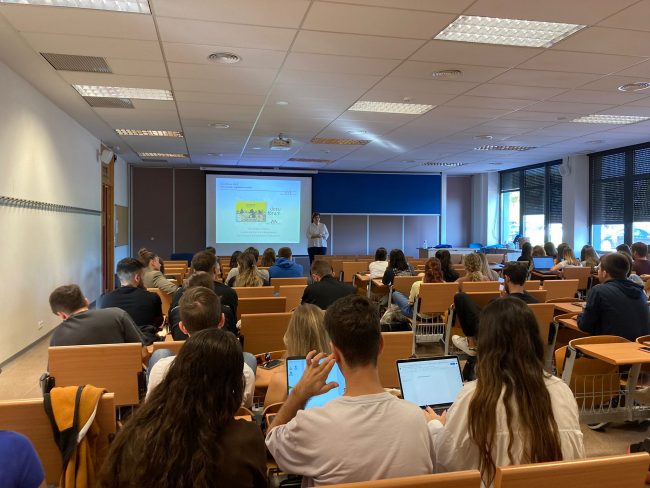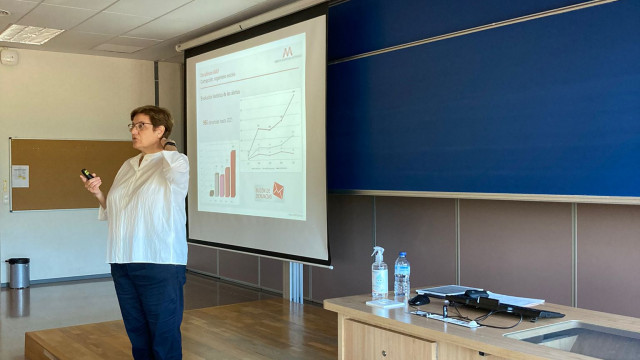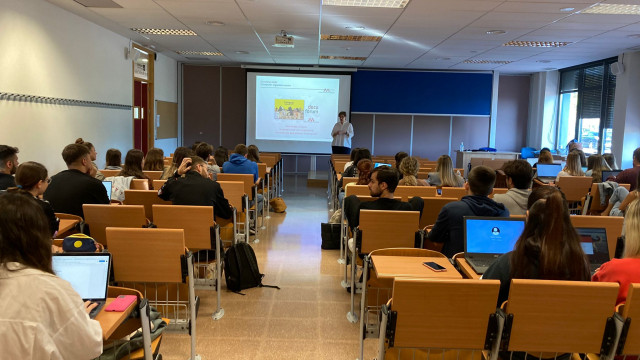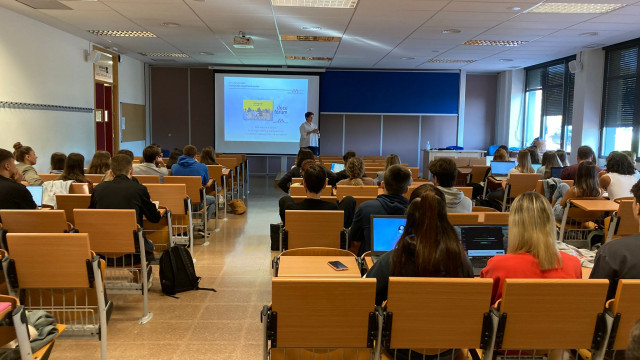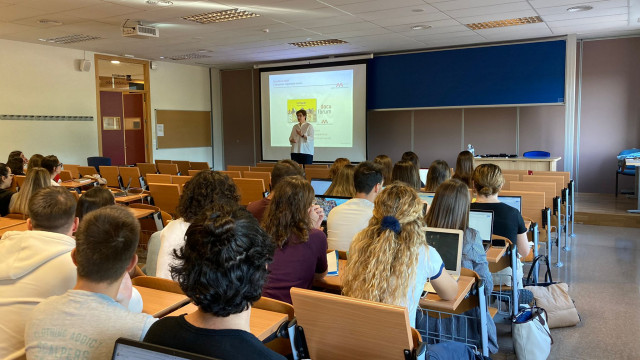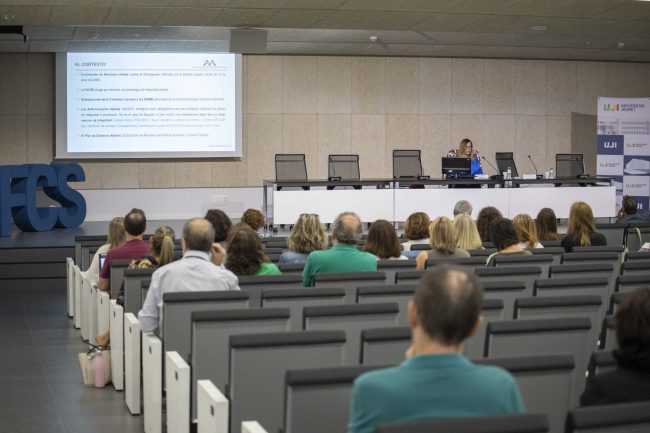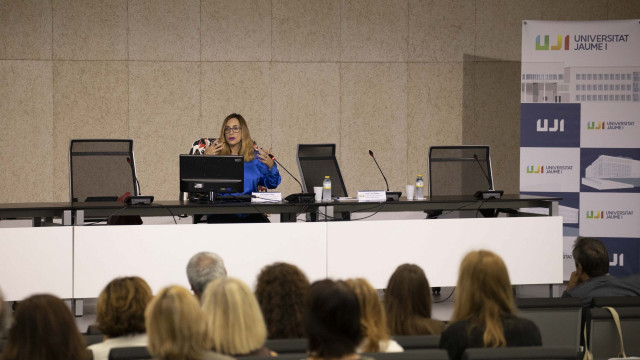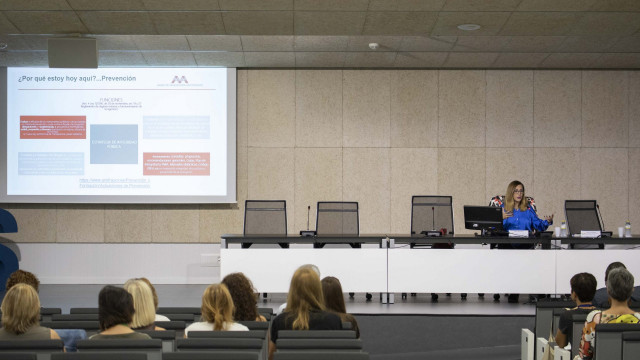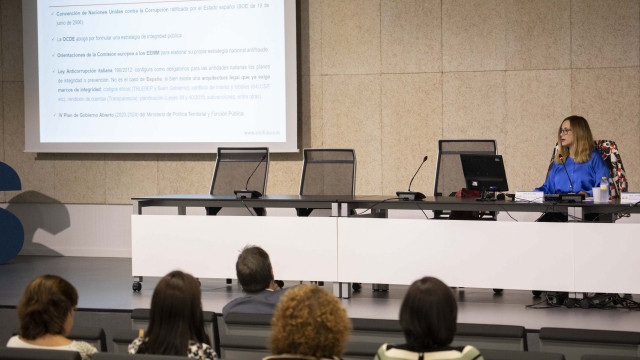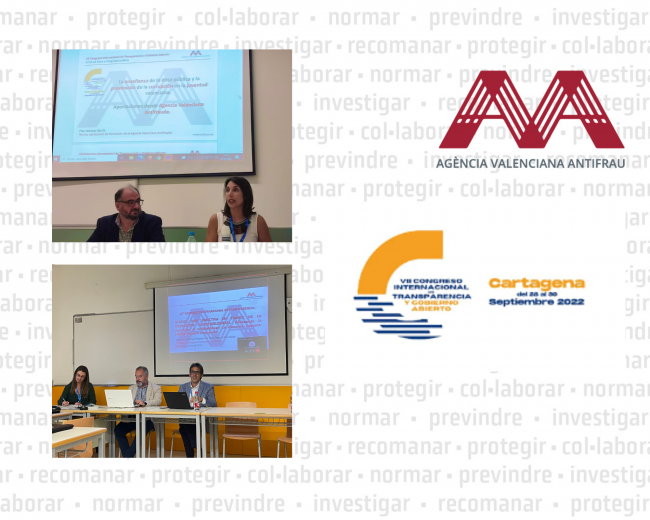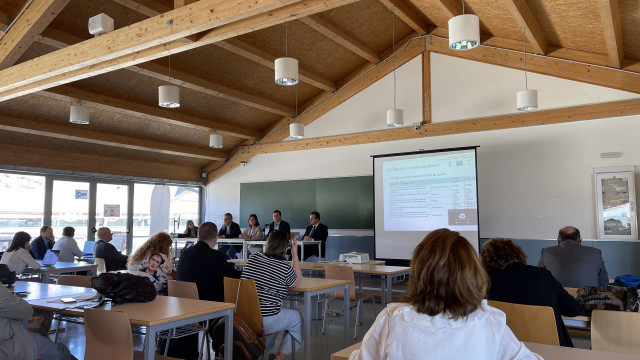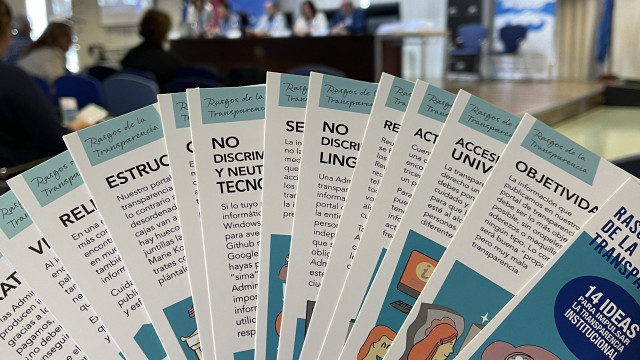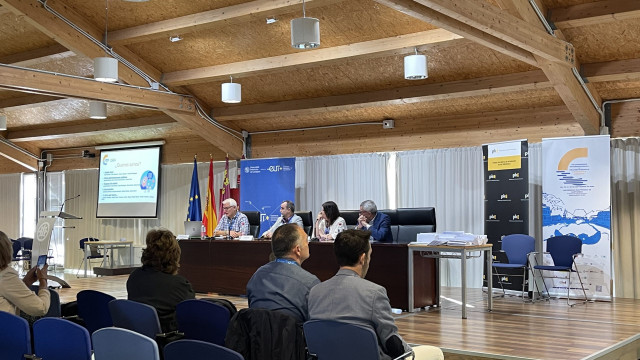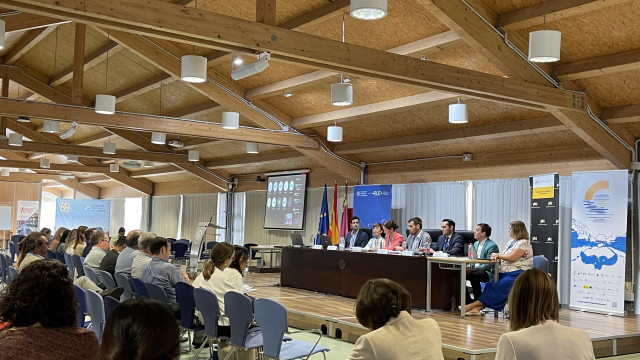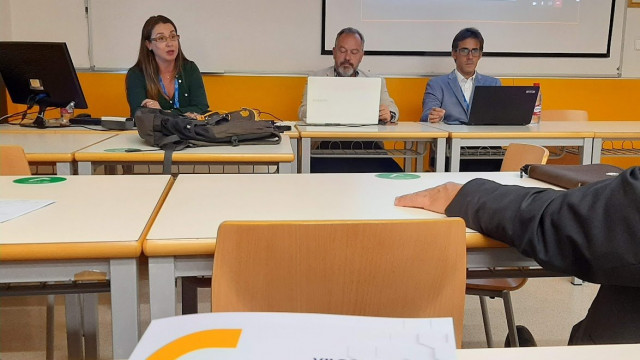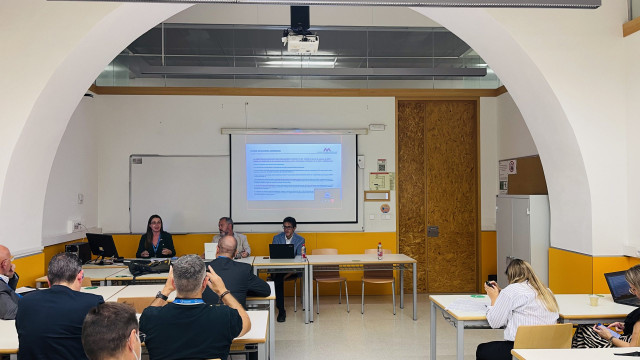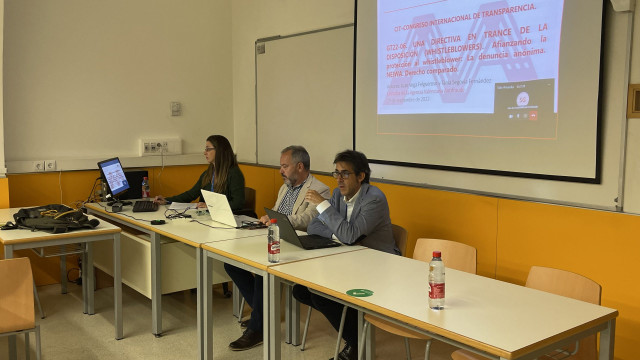The Valencian Anti-Fraud Agency debates corruption in the classrooms of the Faculty of Social and Legal Sciences of the Miguel Hernández University of Elche
#TrainingAVAF
The Valencian Anti-Fraud Agency debates corruption in the classrooms of the Faculty of Social and Legal Sciences of the Miguel Hernández University of Elche
For the third consecutive academic year, the Valencian Anti-Fraud Agency (AVAF) is present in the Faculty of Social and Legal Sciences of the Miguel Hernández University of Elche with the Docufòrums-AVAF activity. On this occasion, to debate with the fourth-year students of the Degree in Journalism and the fifth-year students of the double Degree in Audiovisual Communication and Journalism.
The AVAF develops training activities with future professionals to promote a culture of prevention and fight against any conduct that encourages corruption.
On Friday, October 7, a new activity took place at the Faculty of Social and Legal Sciences of the Miguel Hernández University, with the attendance of 59 students and the participation of the Ethics and Professional Deontology and Political Communication professor, Carmen López Rico, and the Training technician, Marita Oliver.
After watching the documentary Corruption: Harmful Organism, the students star in the training experience through questions, focused on the origin and causes of corruption, its effect and costs, the perception of corruption in our society and with respect to other countries of our environment, what to do in cases of corruption.
In the debate, issues related to public ethics and integrity were also discussed, as well as prevention policies and civic education or the functions and work carried out by the Valencian Anti-Fraud Agency. Of singular importance was the value of the media as a factor that modulates the social perception of corruption and the ways to prevent and combat it.
The debate with the students allows collective reflection on ethical limits and micro-corruption, which every professional encounters throughout his life.
These activities are organized in collaboration with the Miguel Hernández University of Elx, to which we thank for their interest and willingness to help create a culture of public integrity and rejection of fraud and corruption.
If you are a university, secondary or high school teacher and you are interested in having the Docufòrum: “Corruption, harmful organism” training activity carried out in your subject, do not hesitate to contact the Training Service of the Valencian Anti-Fraud Agency through from formacio@antifraucv.es.


